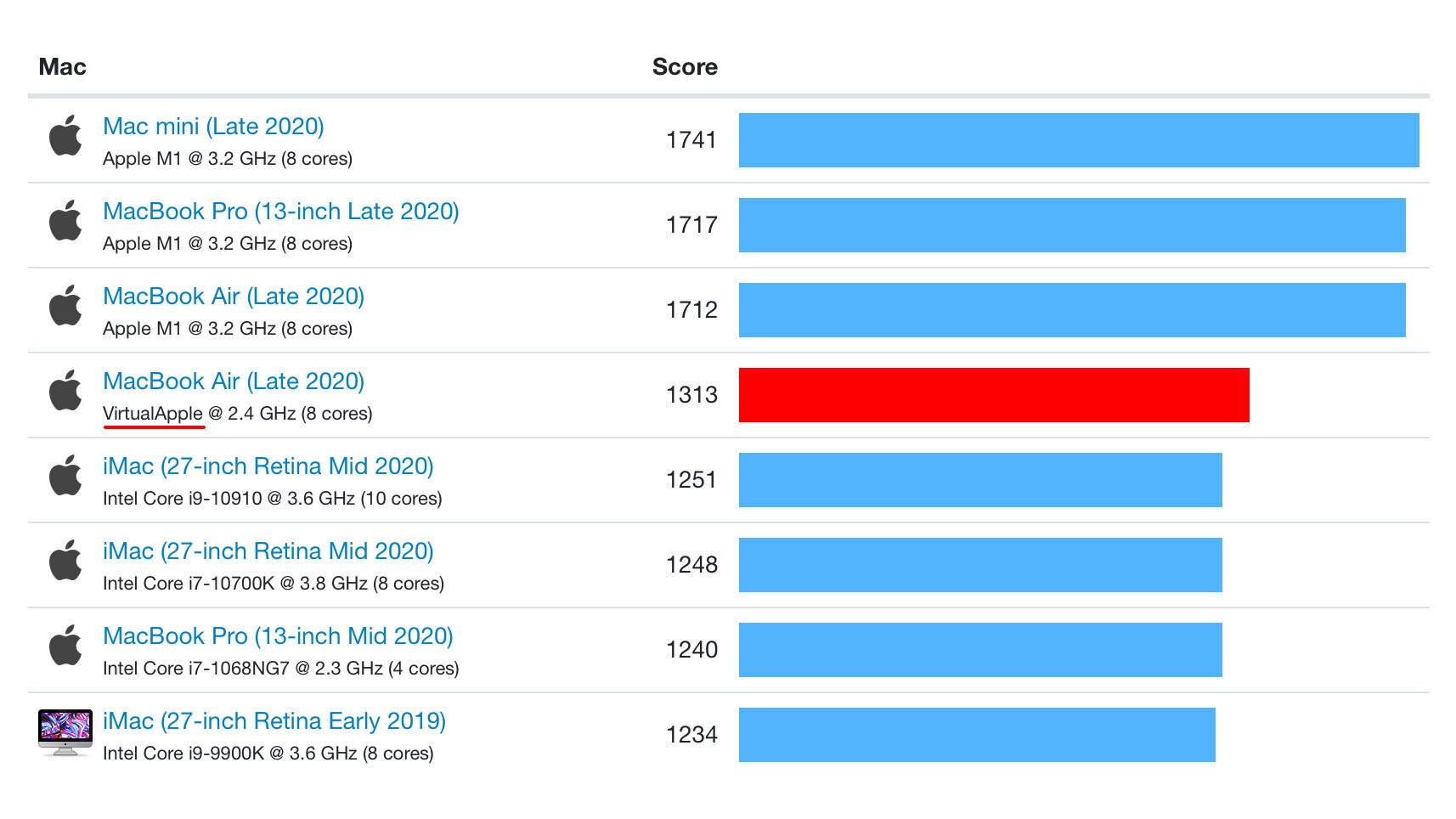
The first native benchmarks of Apple's M1 chip appeared on the Geekbench site last week showing impressive native performance. Today, new benchmarks have begun showing up for the M1 chip emulating x86 under Rosetta 2.

Single Core Mac benchmarks
The new Rosetta 2 Geekbench results uploaded show that the M1 chip running on a MacBook Air with 8GB of RAM has single-core and multi-core scores of 1,313 and 5,888 respectively. Since this version of Geekbench is running through Apple's translation layer Rosetta 2, an impact on performance is to be expected. Rosetta 2 running x86 code appears to be achieving 78%-79% of the performance of native Apple Silicon code.
Despite the impact on performance, the single-core Rosetta 2 score results still outperforms any other Intel Mac, including the 2020 27-inch iMac with Intel Core i9-10910 @ 3.6GHz.
Initial benchmarks for the MacBook Air running M1 natively featured a single-core score of 1,687 and multi-core score of 7,433. Additional benchmarks with M1 have since surfaced and are available on Geekbench.
Meanwhile, a full chart of Geekbench results is available that will let you compare these scores to any other Mac.
Article Link: Apple Silicon M1 Emulating x86 is Still Faster Than Every Other Mac in Single Core Benchmark
Last edited:

